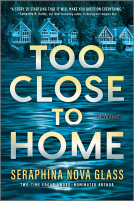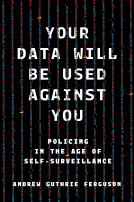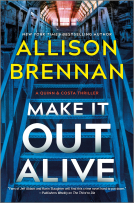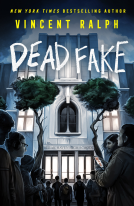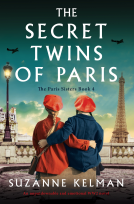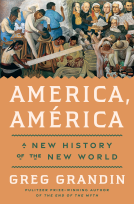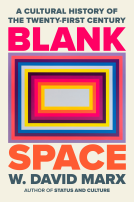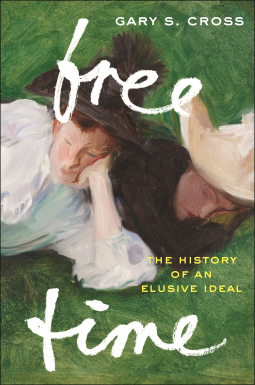
Free Time
The History of an Elusive Ideal
by Gary S. Cross
This title was previously available on NetGalley and is now archived.
Send NetGalley books directly to your Kindle or Kindle app
1
To read on a Kindle or Kindle app, please add kindle@netgalley.com as an approved email address to receive files in your Amazon account. Click here for step-by-step instructions.
2
Also find your Kindle email address within your Amazon account, and enter it here.
Pub Date Feb 13 2024 | Archive Date Mar 19 2024
Talking about this book? Use #FreeTime #NetGalley. More hashtag tips!
Description
2024 Outstanding Academic Title, given by Choice Reviews
The history of leisure time, from the earliest societies to the work-from-home era
Free time, one of life’s most precious things, often feels unfulfilling. But why? And how did leisure activities transition from strolling in the park for hours to “doomscrolling” on social media for thirty minutes?
Today, despite the promise of modern industrialization, many people experience both a scarcity of free time and a disappointment in it. Free Time offers a broad historical explanation of why our affluent society does not afford more time away from work and why that time is often unsatisfying. Gary S. Cross explores the cultural, social, economic, and political history, especially of the past 250 years to understand the roots of our conceptions of free time and its use. By the end of the nineteenth century, a common expectation was that industrial innovations would lead to a progressive reduction of work time and a subsequent rise in free time devoted to self-development and social engagement. However, despite significant changes in the early twentieth century, both goals were frustrated, thus leading to the contemporary dilemma.
Cross touches on leisure of all kinds, from peasant festivals and aristocratic pleasure gardens to amusement parks, movie theaters and organized sports to internet surfing, and even the use of alcohol and drugs. This wide-ranging cultural and social history explores the industrial-era origins of our modern obsession with work and productivity, but also the historical efforts to liberate time from work and cultivate free time for culture. Insightful and informative, this book is sure to help you make sense of your own relationship to free time.
Available Editions
| EDITION | Other Format |
| ISBN | 9781479813070 |
| PRICE | $35.00 (USD) |
| PAGES | 352 |
Available on NetGalley
Average rating from 17 members
Featured Reviews
 Emma E, Bookseller
Emma E, Bookseller
A history of the Western world’s relationship with non-work time, up until the present. Shockingly interesting—the kind of book you keep thinking about. I don’t think I would have read it had it been from an economist’s, a philosopher’s, or a psychologist’s perspective; but the thing that historians have which so often those in other disciplines do not is a much-needed *sense* of perspective. Do not expect advice on How to Live a Happier Life. This is a fairly academic text that covers many centuries of background at breakneck pace, and only in the last chapters attempts to analyze why we, in the modern age, are so often dissatisfied with how we spend our time. (The author admits that he doesn’t have any good solutions.) I have, I suppose, a much-greater-than-average understanding of daily life in the pre-industrial past—I write heavily-researched historical novels and historical fantasy. Still, I had no idea about the astonishing international political activism that led to 40-hours-a-week becoming “standard.” And the way he divided desired leisure activities across class lines was fascinating to me on a personal level. There was at least one area where I felt the author had a blind spot—his acknowledgement that poor working-class people don’t benefit from the 40-hours standard felt pretty insufficient. Still, this is a fascinating read. Whatever your current level of knowledge, your mind will be blown in some way. I’ll never think of phonographs the same way.
 Saeed Ur R, Reviewer
Saeed Ur R, Reviewer
Free Time,' by Gary S. Cross, is an enthralling tour through the evolution of leisure activities, tracing their origins from early societies to the work-from-home age. The author deftly links together cultural, social, economic, and political factors to explain why our modern culture struggles with a lack of meaningful leisure time. Cross' examination of historical attempts to reconcile work and pleasure, from peasant festivals to internet distractions, is both smart and provocative. The book sheds light on our complex connection with time by diving into the industrial-era origins of our fixation with productivity. 'Free Time' is a must-read for anybody interested in the influences that have molded our views toward leisure, labor, and self-improvement.
 Reviewer 1221143
Reviewer 1221143
In "Free Time: The History of an Elusive Ideal," Gary S. Cross masterfully navigates the complex evolution of the concept of free time, tracing its transformation from a luxury of the few to a cornerstone of modern life. Cross presents a comprehensive and thought-provoking exploration that sheds light on the cultural, societal, and economic forces that have shaped our relationship with leisure.
The book begins by delving into the origins of leisure, where Cross reveals that the notion of free time as we know it today is a relatively modern invention. With meticulous research and engaging prose, he unveils how leisure has been influenced by shifting ideologies, technological advancements, and economic structures throughout history. Cross challenges readers to reconsider their understanding of leisure, forcing them to question whether the time we perceive as 'free' truly aligns with the ideals we ascribe to it.
One of the book's notable strengths is its ability to connect historical anecdotes with contemporary observations. Cross skillfully draws parallels between past and present, illuminating how our attitudes toward leisure have both evolved and remained surprisingly consistent. By dissecting everything from the Industrial Revolution to the rise of digital technology, he highlights the continuous struggle to balance work, play, and the pursuit of self-fulfillment.
Cross also delves into the gendered and socio-economic dimensions of leisure, addressing how various groups have historically experienced free time differently. He thoughtfully analyzes the ways in which leisure has often been inaccessible or limited for marginalized communities, offering readers a more nuanced understanding of the disparities that persist to this day.
While "Free Time" is undoubtedly a scholarly work, Cross's writing style is accessible and engaging. He seamlessly weaves together historical anecdotes, scholarly research, and personal reflections, making the book an informative and enjoyable read for both academics and the general audience interested in the history of leisure.
However, some readers might find the narrative occasionally dense with information and concepts, requiring a degree of concentration to fully absorb the intricacies of Cross's arguments. Moreover, in certain sections, a more global perspective could have further enriched the exploration of leisure, considering how different cultures and regions have contributed to the shaping of the concept.
"Free Time: The History of an Elusive Ideal" by Gary S. Cross is a captivating exploration of how societies have grappled with the concept of leisure throughout history. Cross's meticulous research and insightful analysis provide a fascinating journey through time, prompting readers to reflect on their own relationship with free time and the societal constructs that underpin it. This book is an essential read for anyone interested in the intersection of history, culture, and the pursuit of personal well-being.
 Reviewer 1167553
Reviewer 1167553
Free Time addresses two parallel issues about modern free time: how much free time we have, and what we do with it. Or put another way, why we don't seem to have enough free time, and why the way we spend it often doesn't seem very satisfying. The book takes a historical perspective -- starting from pre-industrial times, through today. This is very US-centric, with some comparisons to Europe.
There are many books out there already on the topics of work-life balance, and but this is the first book I've read that discusses this topic from a historical perspective. It is pretty eye-opening to realize that the way we think about and spend free time these days was shaped over many decades as American capitalism, politics, society, and culture has evolved. If you can stomach the dry and academic tone of this book, the historical perspective shows that there are alternatives to the current culture of work and free time that dominates in the US -- full-time work 40 hrs/week, limited paid vacation for those that are lucky to have any, a strong bias towards child-centric activities for families, fast consumer capitalism providing easy entertainment on demand thanks to tech like smartphones and Netflix, and superficial zombie relationships that are typical with social media.
Two key ideas will stick with me, based on how Cross categorizes free time activities in two ways.
The first way is mostly based on social class: the upper ("genteel") class promotes high culture, art, certain types of music, certain types of sports; the middle class seems to devote most of its free time towards insular religious or family and child-oriented activities; and lower classes spend more of their time in the modern day version of the carnival -- bars, amusement parks, movies, spectator sports, etc. Historically, how people spend their free time has been strongly influenced by the social classes, their interactions and tensions.
The second way of categorizing free time activities is through fast goods vs slow goods. Fast goods are mass produced, consumable experiences that are easily accessible, requiring less training and preparation, and have large marketing efforts behind them. For example, movies, video games, spectator sports, and online shopping. Slow goods are those that are taken in at a slower pace, often requiring less upfront cost, probably considered more boring by most, and require more training, skill, and time for the participant. These are things like developing a hobby, spending time in nature, playing a musical instrument, or even reading this book.
The end of the book veers into the philosophical -- what should free time look like? This is where it gets less historical and more opinionated. The author seems to argue for fighting the fast consumer culture of free time with more slow activities that don't directly feed capitalism's goal of infinite growth. I'm still on the fence about whether slow is always better than fast. And maybe it doesn't actually matter that much because realistically, I'll always take part in both. Plus, a lot of my choices about free time aren't only up to me, but also depend on forces outside of me. It's enough for now to be more mindful about free time -- what it's like now, what it was like in the past, and wondering how it might be different in the future.
Thanks to NetGalley and the publisher for the opportunity to review this book!
Readers who liked this book also liked:
Andrew Guthrie Ferguson
Computers & Technology, Nonfiction (Adult), Politics & Current Affairs




